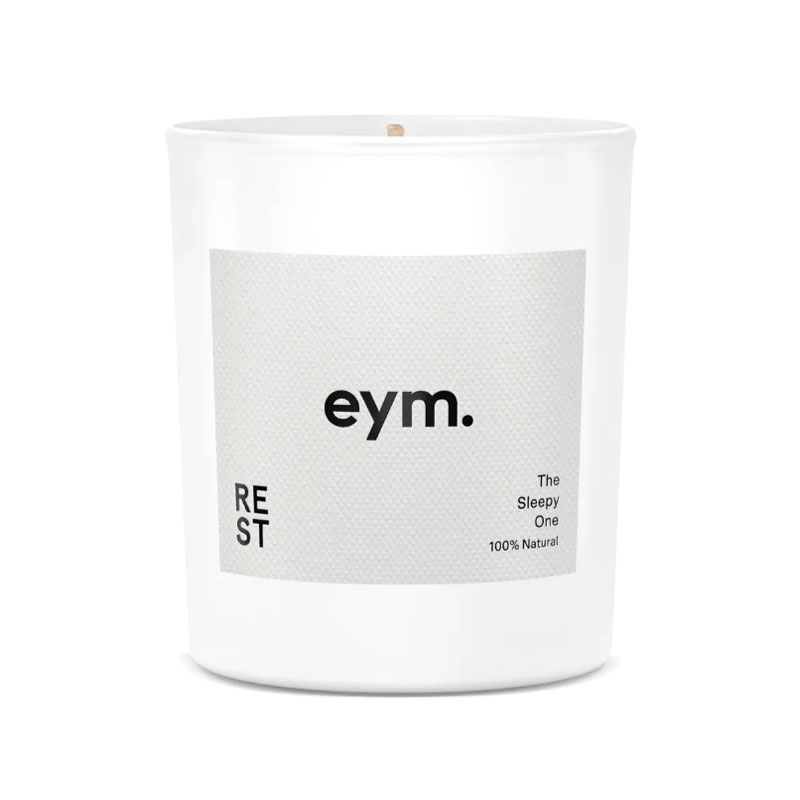How to sleep well on Christmas Eve − 7 sleep secrets for the festive period
I asked an expert panel of sleep scientists and medical professionals how to sleep well on Christmas Eve to give you more energy this holiday season
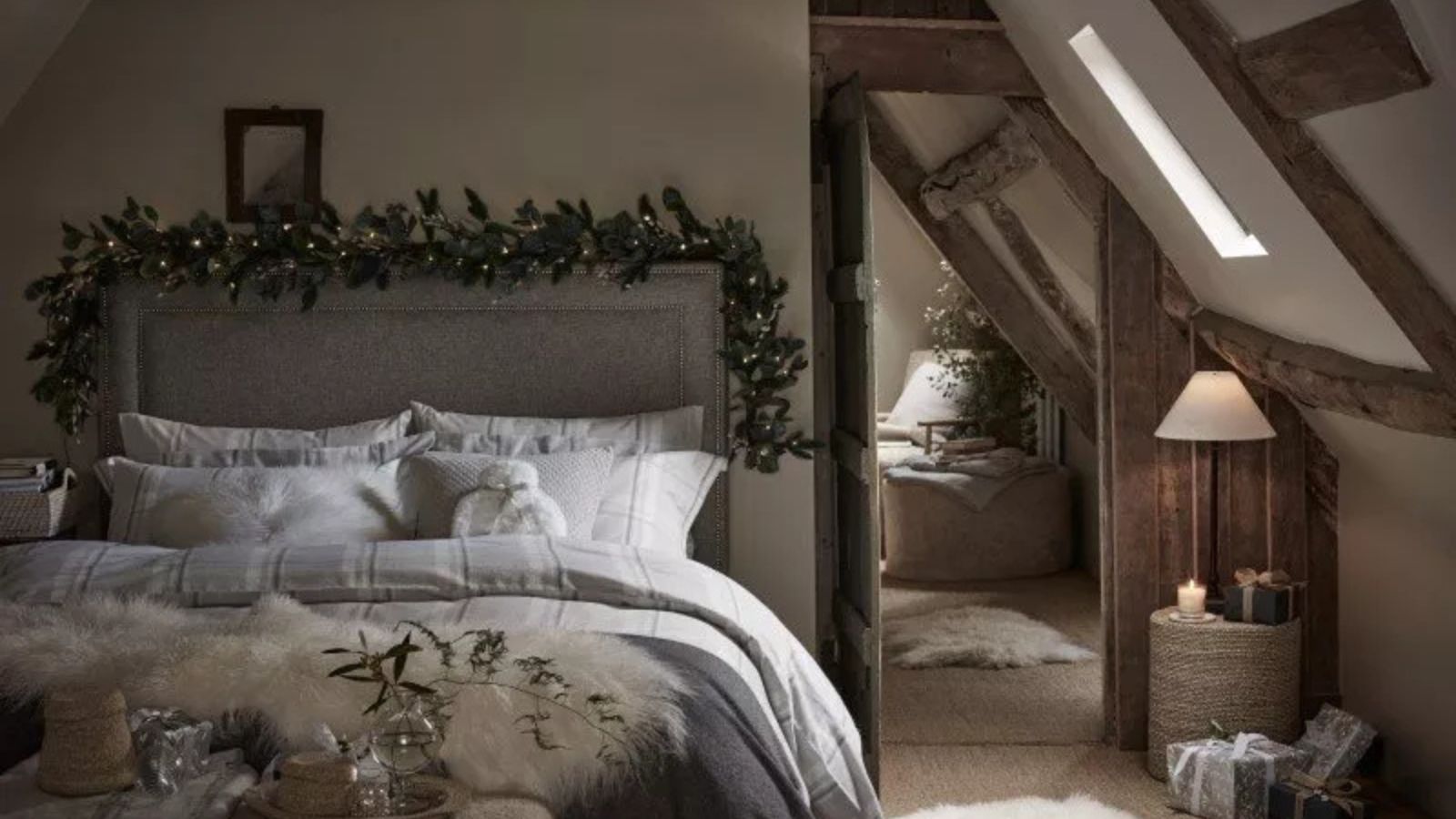
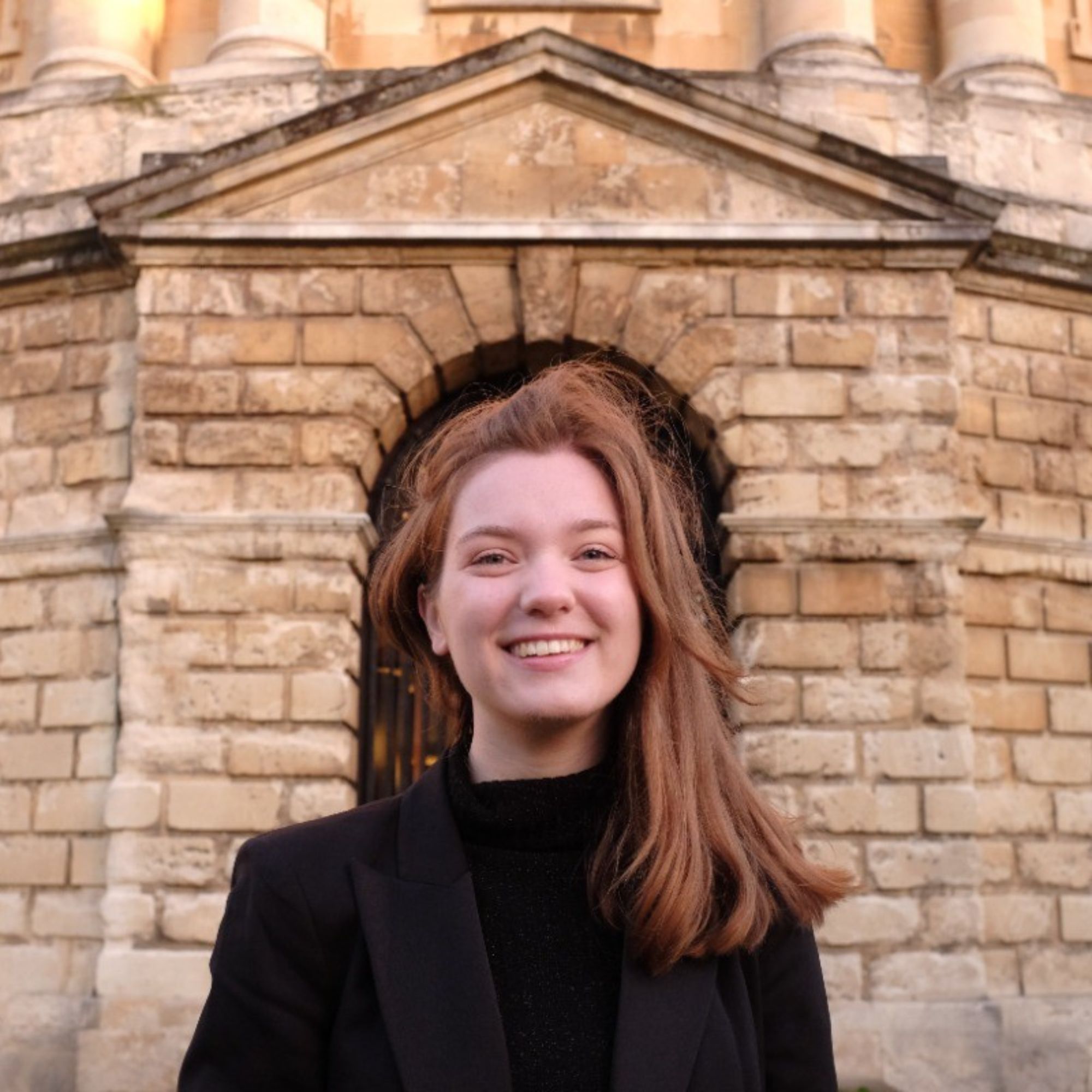
It's the most wonderful time of the year – and one of the most exhausting. Between the late nights, early mornings, and big meals, it can be difficult to get good sleep and maintain healthy habits over the holiday season.
That's why I asked an expert panel of sleep scientists and medical professionals how to sleep better on Christmas Eve. Their advice ranges from easy, affordable upgrades, such as switching to winter bedding and lighting Christmas candles, to carving out space in your busy holiday routine for rest and relaxation.
How to sleep well on Christmas Eve
Remember, everything in moderation: you can enjoy a festive glass of sherry or stay up for late-night gift-wrapping without throwing off your entire sleep routine. Follow as much or as little of this advice as you like and learn how to fix your sleep schedule for Christmas Eve.
1. Create a calming atmosphere in the bedroom
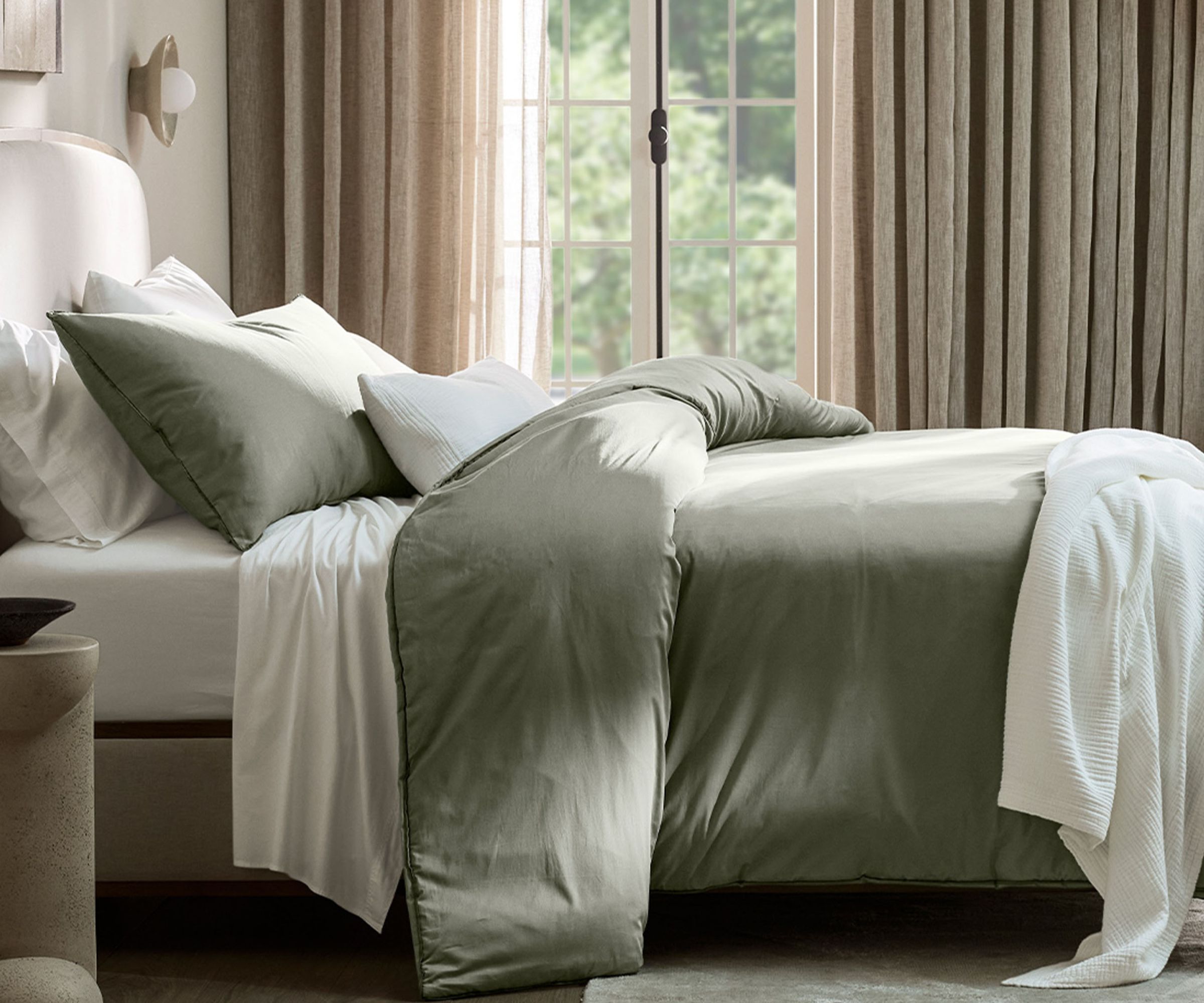
I asked Clinical Neuroscientist and Tuft & Needle Partner Dr. Caroline Leaf how to create a calming atmosphere in the bedroom. She recommends you 'ensure your sleep environment is cool and comfortable with breathable bedding. Opt for the best bed sheets and blankets to stay cozy yet cool. Consider adding a weighted blanket for a soothing effect. Set your thermostat to below 70 degrees if possible: around 65°F is the best temperature for sleep.'
'Declutter your bedroom to create a peaceful and organized space,' Dr. Caroline continues. 'Use blackout curtains to block light and enhance relaxation. Dim lighting and/or light candles in the evenings until you go to bed. Use a white noise machine, like the Tuft & Needle White Noise Machine, to drown out distractions or play calming music to promote physical and mental relaxation. Use a diffuser with calming essential oils, like lavender or chamomile, for a soothing aroma. This pairs well with soft, calming music.'

For 100% mulberry silk, this is unbelievably affordable: it's a great gift from you to you this holiday season. In this Brooklinen bundle, you get one of the best silk pillowcases to keep your skin clear and your hair smooth, plus a silk eye mask to block out unwanted distractions.
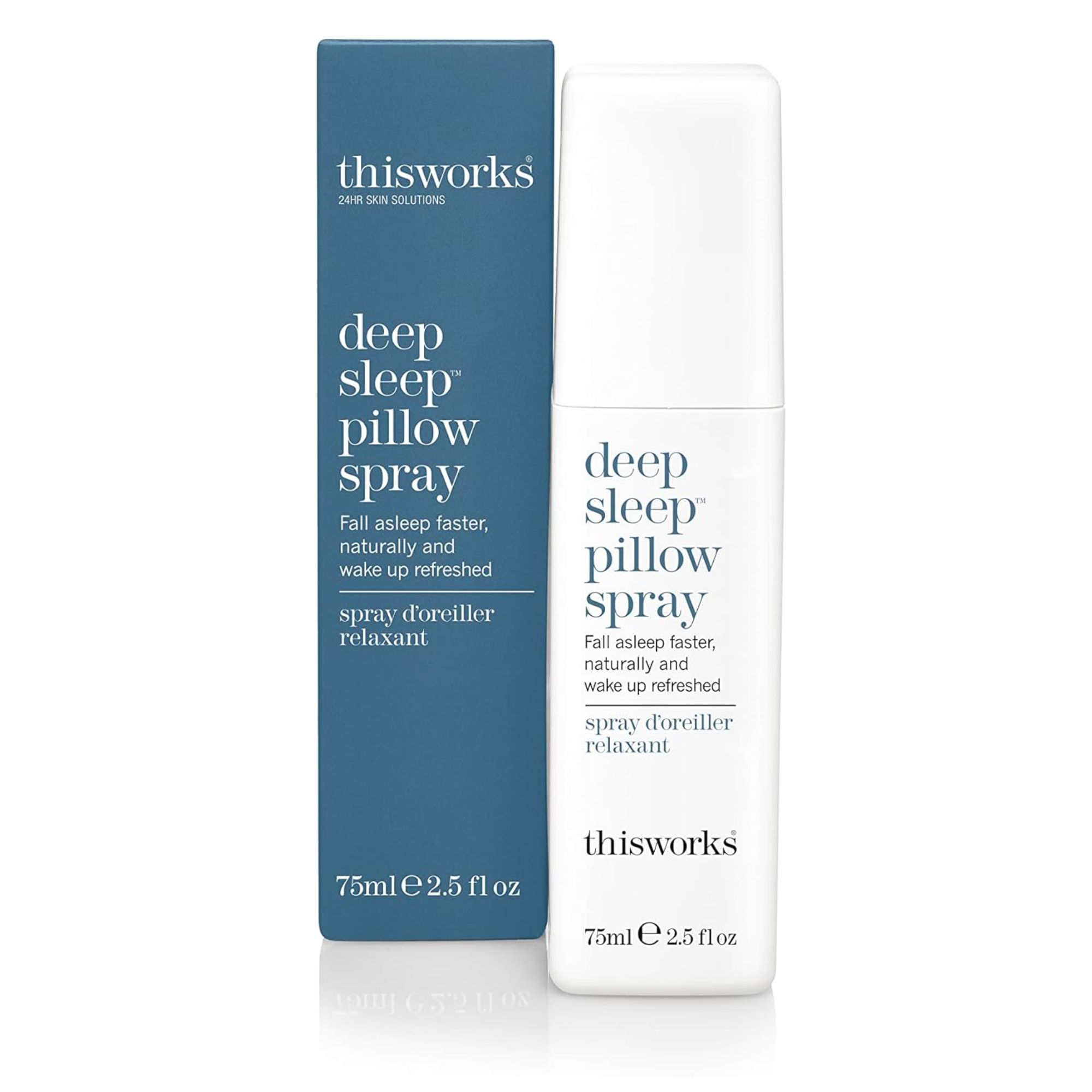
Spritz a little pillow spray to soothe yourself to sleep. I'm quite sensitive to smells, so I don't like anything too chemical. thisworks is my brand of choice, and I think this is one of their best bedroom scents for sleep, combining fragrant lavender, calming chamomile and earthy vetiver.
2. Manage the kids' excitement
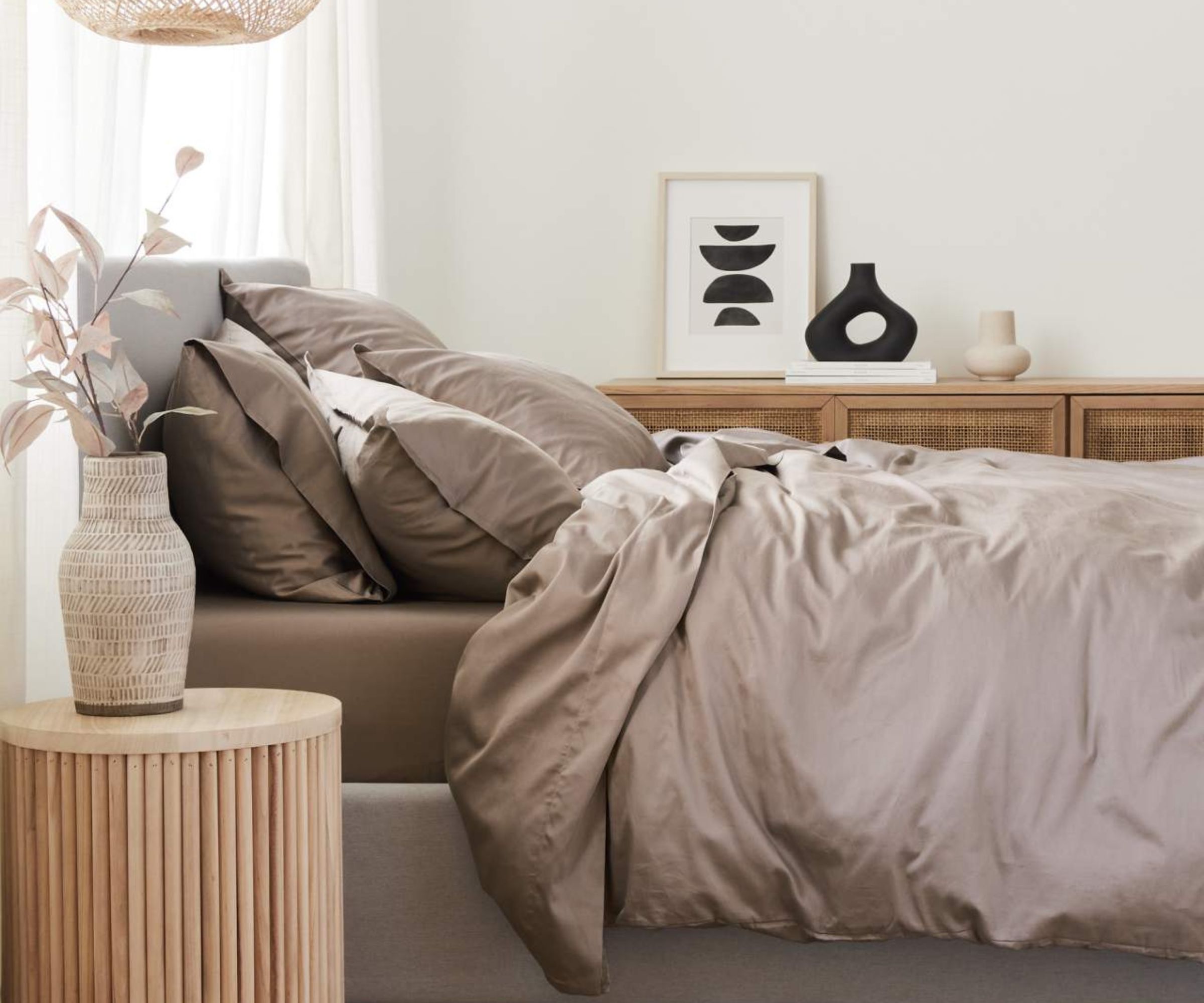
Perhaps you wouldn't be struggling to sleep over the festive period if it weren't for your kids keeping you up. Content Director for Homes & Gardens and mother-of-two Lucy Searle remembers the struggle all too well.
'One year, my kids woke me up every hour on the hour on Christmas Eve,' says Lucy. 'After that, I instilled a pretty strict routine with them, which worked surprisingly well. I made sure they got a good couple of hours of exercise on the day and didn't let them have any candy. I kept the evening very calm with dinner, bath, and bedtime at the same time as usual, and put a stocking in their bedrooms.'
'Then, I (very meanly) told them that Santa didn't come to houses where children were awake and that they had to stay asleep all night for their gifts to be delivered. Finally, I told them that when they woke up, they could open their stocking gifts and play with what was in them but not come into my bedroom until I said they could. Amazingly, it worked.'
'Of course, as they get into their teens, you're awake way before they are, and the situation is reversed, so savor the excitement while you can.'
3. Practice meditation
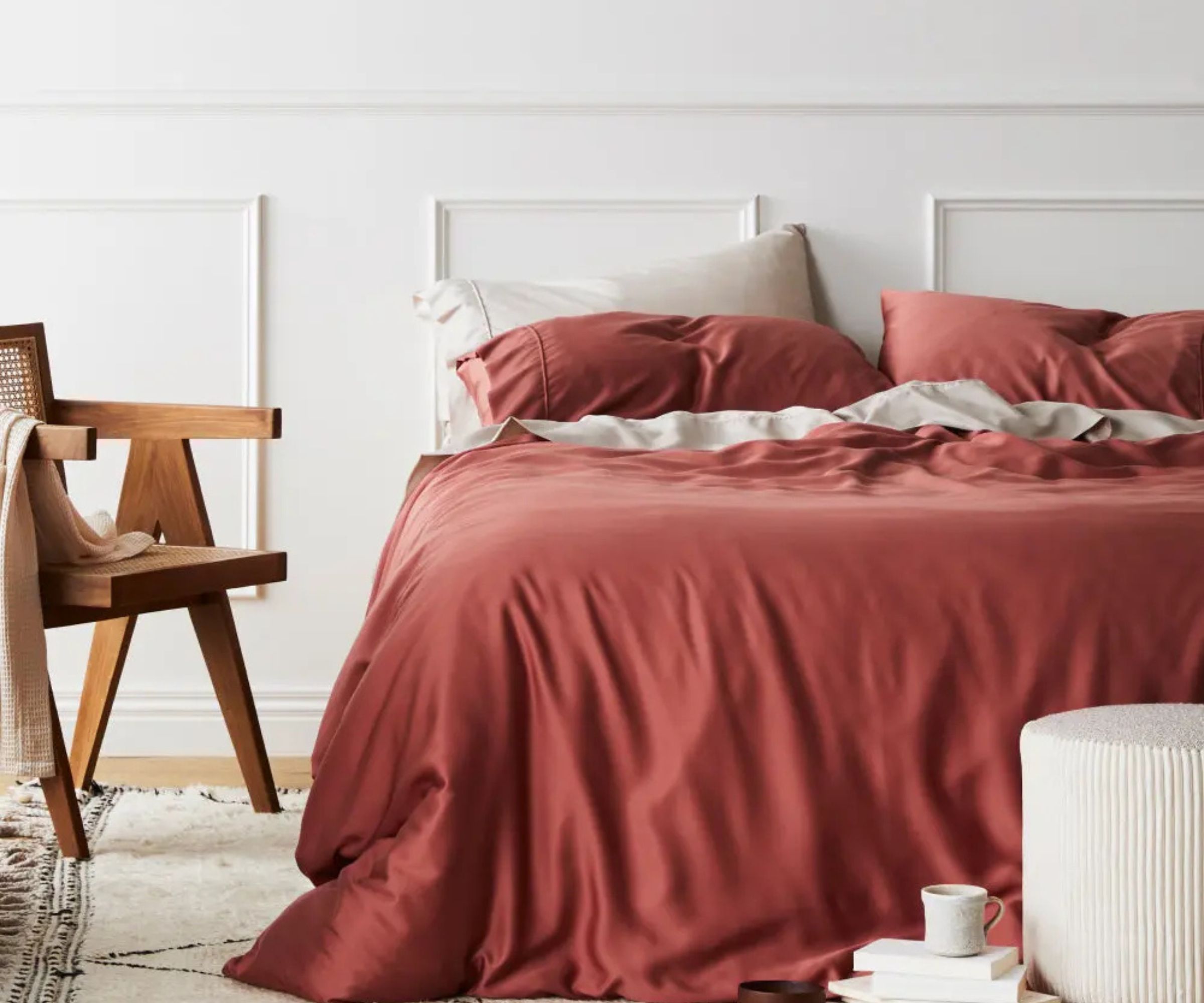
Psychotherapist Lauren Farina recommends mindfulness as a means of winding down. 'Mindfulness simply means non-judgemental present-moment awareness,' says Lauren, 'and it involves letting go of the stories of the past or future to connect with the peace of the present moment.' Let's put that into the context of Christmas Eve: instead of thinking about all the gifts you haven't wrapped or food you haven't prepped, or worrying about what will happen on Christmas Day, mindfulness encourages you to focus on the here and now.
'Meditation is one form of mindfulness practice,' says Lauren, 'and many people find guided meditation apps and videos helpful. But meditation isn't the only way to cultivate mindfulness: many of my clients benefit from breathwork, which provides another means of connecting to the present via the breath.'
'I especially like a form of breathwork called box breathing. Try this: inhale through the nose for the count of four, then hold that breath for the count of four, and finally, exhale through the mouth for the count of four. Just two to five minutes of breathwork once or twice a day is enough to experience its calming and stress-mitigating effects.'
4. Maintain healthy habits
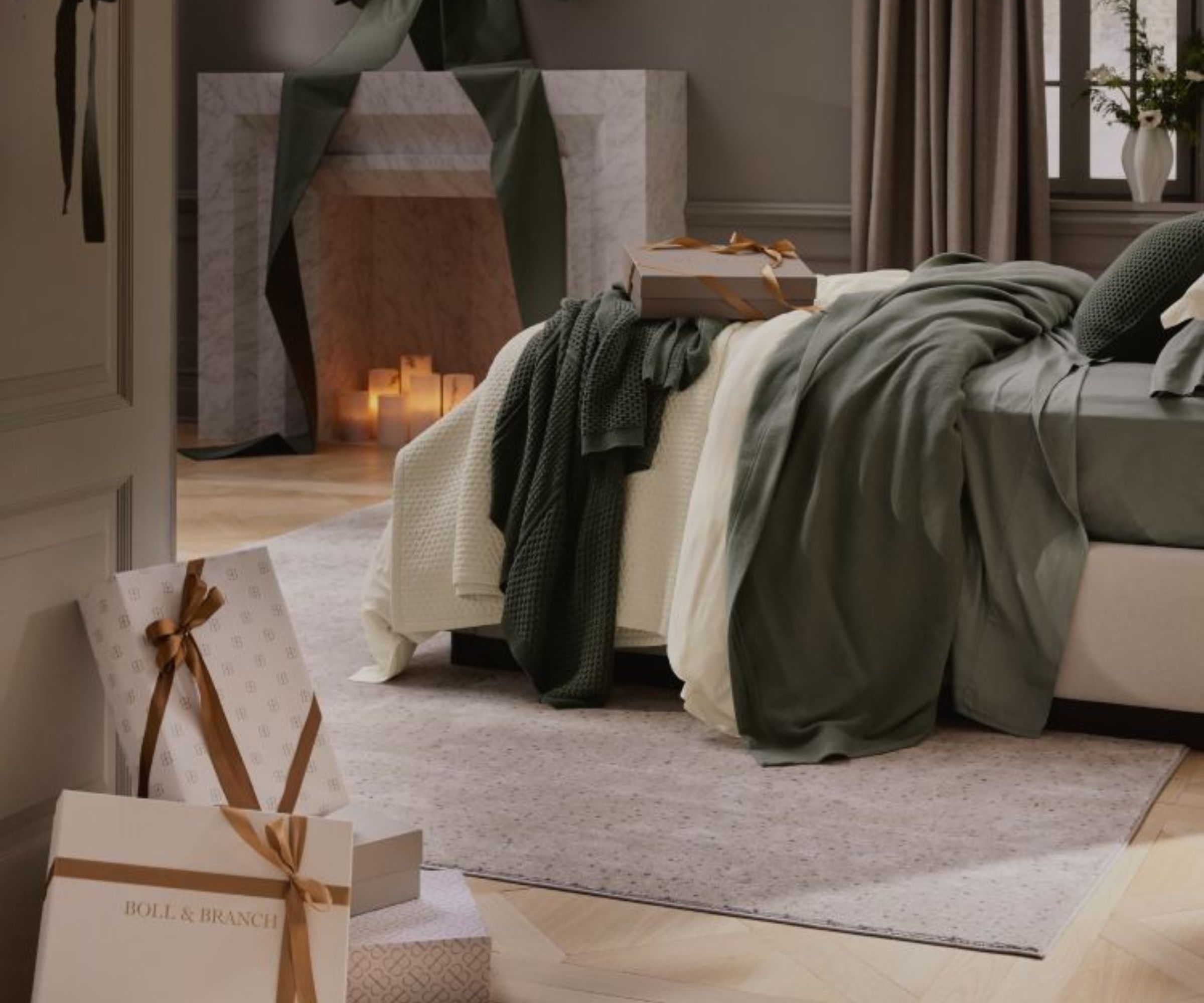
According to National Sleep Foundation lead researcher Joseph Dzierzewski, PhD, 'Stress is the enemy of good sleep, and we never want to add on to stress during the holiday season – including additional worries about staying in your normal routine during such a hectic time. With that said, the National Sleep Foundation recommends a key set of small steps to ensure optimal sleep health – what we call being your Best Slept Self.'
Dr. Joseph recommends that you 'incorporate as many of these steps as possible whenever you have a shift in your routine such as while on vacation, during the holidays, and any other time when life gets hectic, and get back to your normal routine as soon as possible. It’s all about maintaining healthy habits over time, and small steps can make a big difference.'
'Spend time in bright light during the day, natural light, or equivalent brightness. Exercise regularly for healthy sleep. Aim for 30 minutes a day, 5 days a week. Eat your meals at consistent times day after day.' That last one is harder around the holiday season, especially if you're moving from household to household, but if you're hosting, you can set the timelines.'
'Avoid heavy meals, nicotine, caffeine, and alcohol before bedtime,' Dr. Joseph warns. 'Use a consistent, relaxing wind-down routine with the same sleep and wake times each night. Put your devices away an hour before bed and sleep in a quiet, cool, and dark environment.'
'If you do find that your typical night-time routine gets disrupted during the Christmas season, worrying about it might make things even worse. Instead, recommit to your sleep health and a healthy, relaxing night-time routine as soon as possible.'
5. Keep an eye on what you're eating
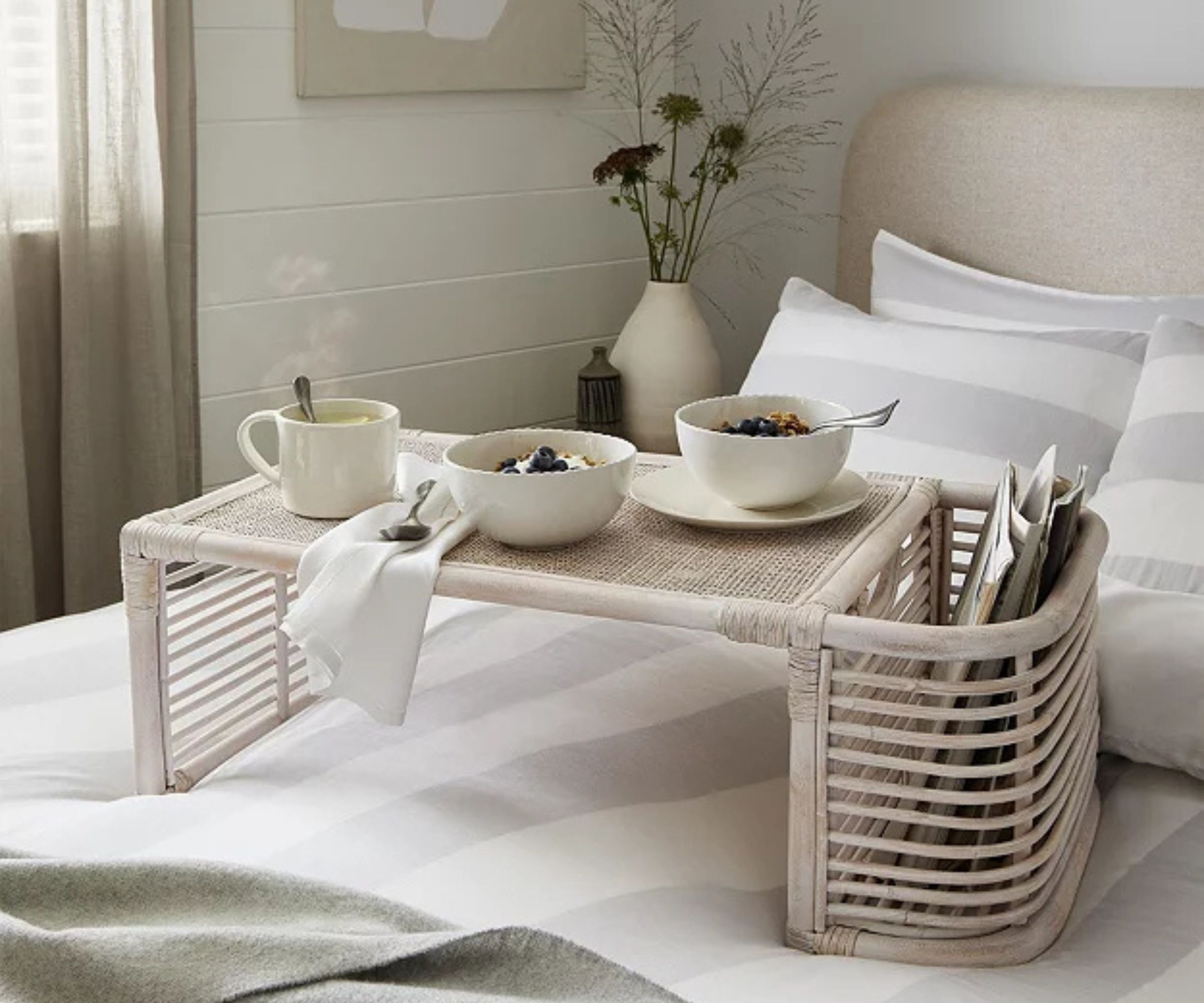
'One of the main joys of Christmas has to be the traditional Christmas Day dinner, where we indulge in richer and more plentiful food than usual, often falling into the infamous "food coma",' says Theresa Schnorbach, Psychologist and Sleep Scientist at Emma. 'Eating excessively directly causes us to feel tired, as it puts our digestive system into overdrive, resulting in feelings of lethargy.
'It’s not just how much we eat, but also what we eat that causes the sleepy feeling,' Theresa warns. 'Turkey, peas, broccoli, and even cheese are all high in tryptophan, an amino acid that helps your body to produce melatonin – a hormone that signals to our body that it’s time to sleep.'
'These sorts of festive foods can make it difficult to stay awake until bedtime and encourage long naps, which can disrupt our body's natural sleep rhythms,' says Theresa. 'If you're looking to sleep through the night, then try to stay awake after a big midday meal. Instead of planting yourself in front of the television, try helping to clear up after Christmas dinner or going for a walk to aid your digestion.'
6. Pay attention to what you're drinking

Clinical psychologist Dr. Leah Kaylor says, 'A holiday party isn't complete without cocktails. You can enjoy a drink or two but do so early into the evening, ideally 4 hours or more before your bedtime, so the alcohol can process through the stomach and have as minimal impact on sleep as possible.'
'The same principle applies to big meals. Who doesn't love all the special foods at the holidays? To prevent such rich food from impacting your sleep, try to stop eating 2-3 hours before bedtime to allow the food to move through the stomach. When the food has been processed, you will be able to reach much deeper stages of sleep compared to a full stomach.'
'Caffeine is another common culprit that keeps us awake,' says Dr. Leah. 'Caffeine has a relatively long half-life which means it stays in the body for a while after you drink it and it continues to exert its effects. I recommend cutting out caffeine in the early afternoon to avoid disrupting your sleep.'
7. Try not to nap for too long
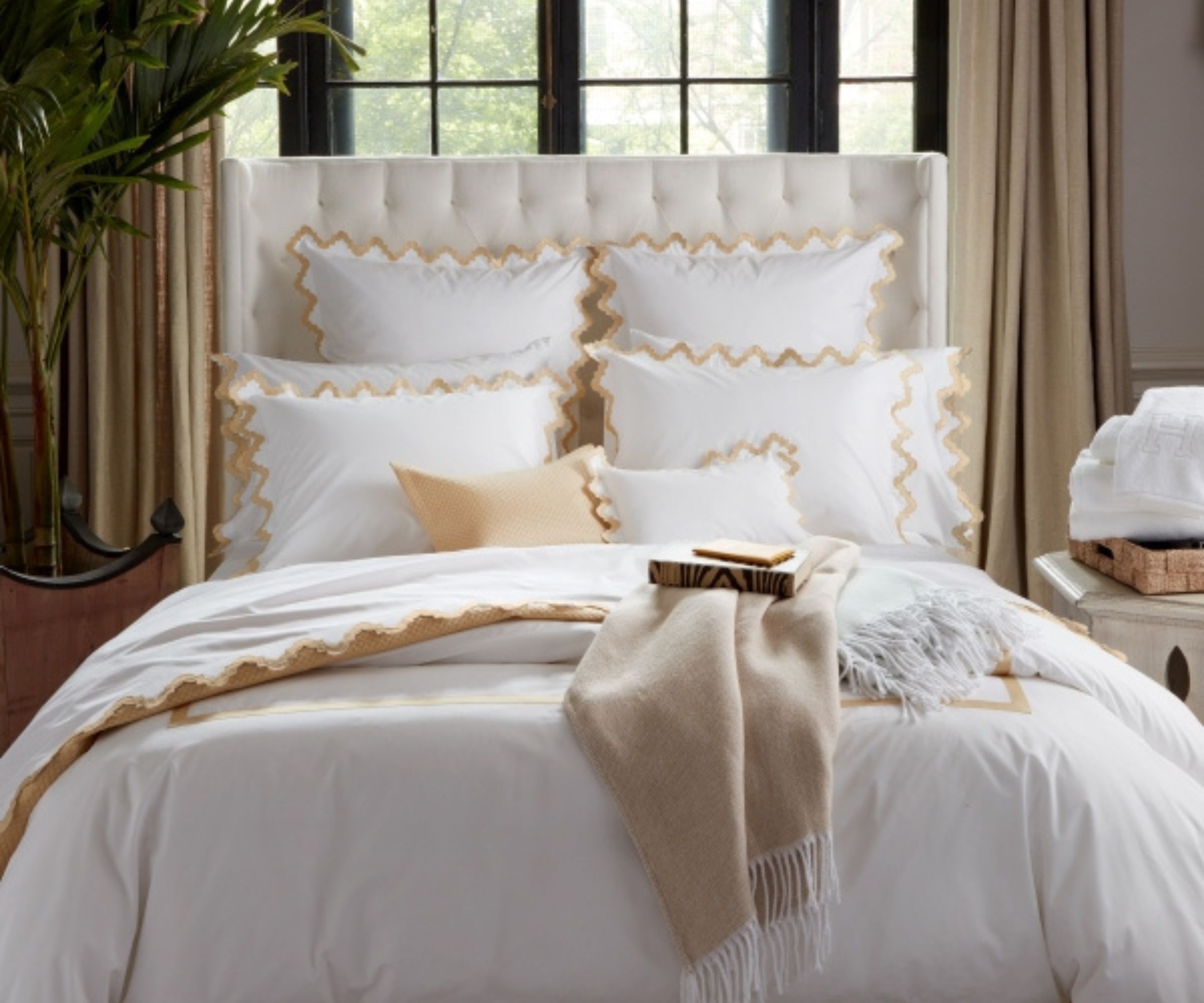
After a large dinner, it can be tempting to curl up on the couch and have a nap to get you through the day. Thomas Høegh Reisenhus, a sleep specialist at Tempur-Pedic, says 'there's nothing wrong with indulging in an afternoon nap. In fact, a mid-afternoon nap can boost memory, improve productivity, and ease stress.'
There's a big difference between an occasional quick nap and regular, longer naps. 15 to 30 minutes should suffice: if you sleep for much longer, you risk throwing off your sleep schedule and feeling even worse when you wake up.
Christmas can sometimes be coupled with end-of-year burnout, leading to feeling of laziness. My advice: embrace being a little lazier at this time of year. Enjoy your time away from work and everyday stressors. Try to rest and recuperate so that you're ready to prioritize sleep in the new year.
Sign up to the Homes & Gardens newsletter
Design expertise in your inbox – from inspiring decorating ideas and beautiful celebrity homes to practical gardening advice and shopping round-ups.

Emilia is our resident sleep writer. She spends her days tracking down the lowest prices on the best mattresses and bedding and spends her nights testing them out from the comfort of her own home. Emilia leads a team of testers across America to find the best mattress for every sleep style, body type, and budget.
Emilia's quest to learn how to sleep better takes her all around the world, from the 3Z mattress factory in Glendale, Arizona to the Hästens headquarters in Köping, Sweden. She's interviewed luxury bedding designers at Shleep and Pure Parima, as well as the Design Manager at IKEA. Before she joined Homes & Gardens, Emilia studied English at the University of Oxford.
-
 Pamela Anderson's kitchen seating arrangement is one of the most intelligent I've seen – it turns an awkward corner into a chic social space
Pamela Anderson's kitchen seating arrangement is one of the most intelligent I've seen – it turns an awkward corner into a chic social spaceThe model's banquette seating perfects a smart seating trend that's shaping how we dine and socialize in 2025 – and it will fit in the smallest of kitchens
-
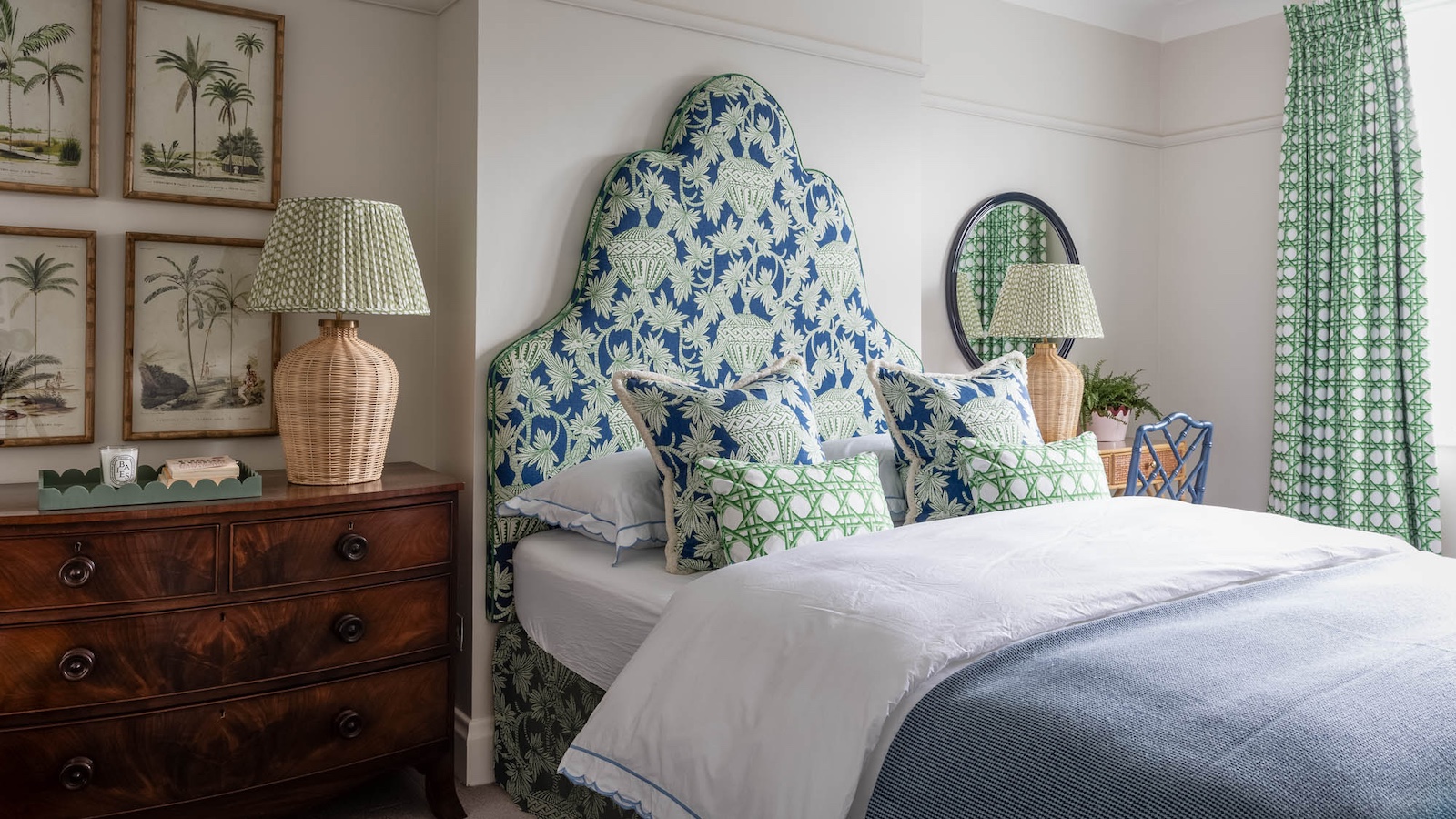 8 of the biggest small bedroom layout mistakes designers see time and time again
8 of the biggest small bedroom layout mistakes designers see time and time againThese small bedroom layout mistakes are so easy to make, but so easy to avoid too
